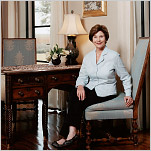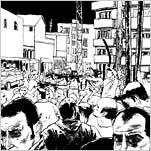Waver Brickhouse, gray-haired and soft-spoken, has come undone twice during the nation’s housing crisis.
In 2005, she fell behind on her mortgage payments and turned to a so-called rescue firm, which, court papers allege, tricked her into signing away the deed to her Brooklyn home. She says the company, Home Savers Consulting, secretly sold her home, with the help of a mortgage from IndyMac Federal Bank, and ran up huge new debts.
Now broke, deeply embarrassed and facing the loss of her small row house in the Brownsville neighborhood, Ms. Brickhouse, 69, faces a new problem. She must convince the Federal Deposit Insurance Corporation, which last year took control of IndyMac, now insolvent, that her mortgage payments should not include at least $150,000 tacked on by fraud.
To assume these new costs, she says, would break her in two.
“I’m going to drown in debt,” says Ms. Brickhouse, a retired city parks department worker, shaking her head. “I feel like it’s just a matter of time until I’m on the street with my children.”
F.D.I.C. officials say that they have no desire to put Ms. Brickhouse on the street and that they want to work out affordable payment terms. But Ms. Brickhouse’s lawyers say that the F.D.I.C.’s writ cannot extend to holding her responsible for a fraudulently created mortgage, and they have refused to disclose her finances until the agency drops its claim for the $150,000.
“Our position is that the mortgage with IndyMac is toilet paper — it has no legal standing,” said her lawyer Rick Wagner, litigation director with Brooklyn Legal Services Corporation A. “The law for 200 years is that no title can arise from a fraudulent act.”
Ms. Brickhouse has sued Home Savers, and her case underscores the conundrum facing the F.D.I.C. as it wades through thousands of troubled mortgages it has inherited from failed banks, 40,000 from IndyMac alone.
Tasked with renegotiating mortgages and cautious about preserving taxpayers’ dollars, the F.D.I.C. has tried to steer clear of making judgments about whether homeowners have fallen victim to fraud.
“Our position on stated income loans is that a lot of people say that someone else was responsible for the fraud,” Michael H. Krimminger, special adviser for policy in the office of the F.D.I.C. chairman, said in an interview. “It’s much more productive to get people to a position where they can stay in their homes, and to do that we must be able to verify what a borrower can afford.”
But Ms. Brickhouse’s case has a persuasive ring to it, not least because one of those engaged in the alleged fraud returned her deed and swore out an affidavit describing the scheme. In December, Mayor Michael R. Bloomberg invited Ms. Brickhouse to a press conference and vowed to forestall foreclosures in cases like hers.
Her story finds an echo in many working-class corners of New York City. The company accused of victimizing her, Home Savers Consulting, has been sued by homeowners in Brooklyn, Queens and Staten Island, and nearly every case alleges a similar pattern of deception: An owner behind on a mortgage turns in desperation to Home Savers, which secretly transfers the deed to a “straw buyer” with good credit who qualifies for a cash-out refinancing. Then, it is alleged, Home Savers drains the homes of equity.
Jessica Attie, co-director of the South Brooklyn Legal Services Foreclosure Prevention Project, estimates that Home Savers extracted at least $5 million in equity from the homes of people in a handful of her cases. Legal services lawyers have frequently forwarded information on Home Savers to prosecutors, but no criminal cases have been brought.
One of Home Savers’s founders, Garth Celestine, declined to address any detail of Ms. Brickhouse’s case. “We had a plan to help people,” he said on Thursday. “Maybe it did not always work.”
He said he would explain all of it in a book he is writing. Asked its title, he replied, “I’m thinking of calling it ‘No Good Deed Goes Unpunished.’ ”
Hundreds of new fraud claims like Ms. Brickhouse’s emerge every month. The F.B.I.’s most recent Financial Crimes Report estimates that mortgage fraud costs Americans $4 billion to $6 billion annually. The same report identifies New York State as a “Top 10 hot spot” for fraud, and notes that federal law enforcement is overburdened.
Last week, Sheila C. Bair, the F.D.I.C.’s chairwoman, called mortgage fraud “a significant problem” and warned that “scammers are moving into foreclosure prevention.”
Waver Brickhouse does not come by trust easily.
She grew up in the public housing towers of Brownsville, and her mother drilled it in her that survival depended on keeping to herself. She led a largely solitary life, going to work and church, and adopting four foster children.
- 1
- 2













